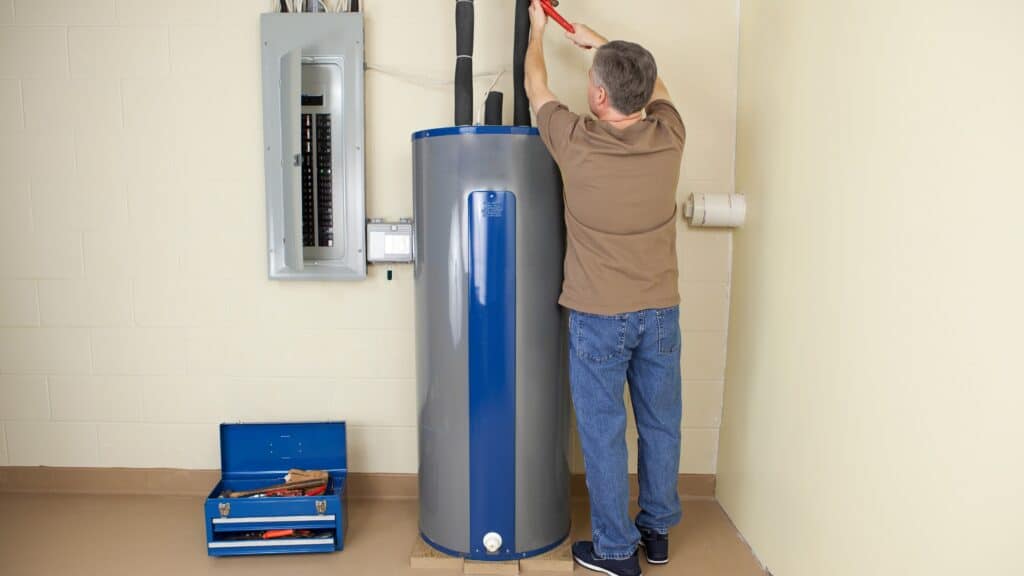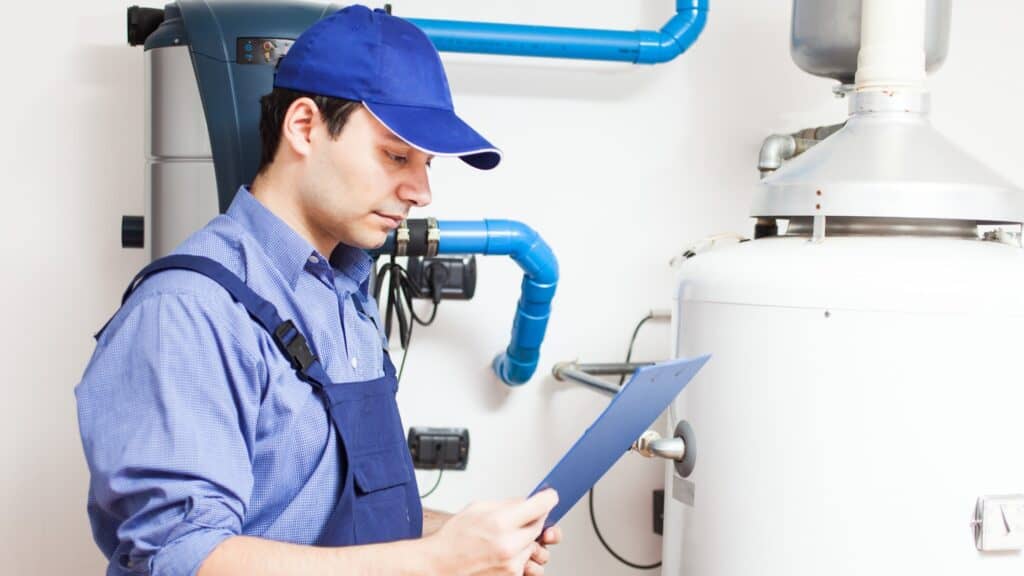Replacing a water heater on your own can be tricky – you can either hurt yourself or cause more damage to your house. So, it’s best that you consult a professional to install a new water heater.
A word of caution: As a general rule, if any electrical or water installations require repair, they must always be done by a professional. Even the slightest negligence in this regard can have serious ramifications.
Replacing a water heater requires the services of a skilled electrician and plumber. Some heating companies rent water heaters and if there are any problems with a rented water heater, it is best to contact them directly.
The entire process of replacing a water heater needs to be well thought out and planned. From the kind of water heater that should be installed to how the replacement of the water heater will be conducted – a professional should plan out these details.
Why Should You Replace Your Water Heater?
If you’re on the fence about whether or not you should change or fix your water heater, then let’s get it straight. Think of the faulty water heater as a blessing in disguise; you can use this opportunity to review and perfect your entire heating system and also save money in the long run.
When replacing an old water heating system with a new one, all the old thermostats and radiators will also be changed. The challenge with old water heaters and equipment is that they are inefficient and can be costing you more to keep them running in the long run.
Modern thermostats are well-insulated and can be controlled externally using mobile applications. Another advantage is that you can use mobile applications to control the temperatures when you are not at home.
How To Choose The Right Size Of The Water Heater

To choose the optimum size of the water heater, consider the amount of water that the people in the house need and also whether the amount of water consumption is going to increase in the future.
There are different kinds of water heaters and it is best to know the difference before making a purchase.
- Conventional water heaters have a storage tank that serves as a ready reservoir for hot water. The size of this reservoir is selected according to the requirement of the household it is going to be installed on. The challenge with this kind of water heater is that it fails miserably when the water output is increased. So if you think that hot water consumption will increase in the future, this hot water heater may not be the right one for you.
- Tankless water heaters have the ability to heat water directly. They do not have any storage tanks. Tankless water heaters are designed to ensure that the household never runs out of hot water. They do take some time to heat the water up as the hot water needs to travel through the pipes to the output source.
- Water heaters with a heat pump can transfer heat from one source to another and do not involve the generation of heat to warm the water. They use electricity to move the heated water through pipes but not to generate heat. This is why water heaters with heat pumps are at least three times more energy efficient than other water heaters. Heat pumps can pull heat from the surroundings such as the ground and then transfer that heat to the water in a storage tank at higher temperatures.
Selecting The Best Water Heater For Your Residence
To select the best water heater, the following things need to be considered:
- Type of fuel available and its cost: the type of fuel that you select will not only have an impact on the cost of operating the water heater annually but will also affect the efficiency of the water heater.
- The size of the water heater: Get in touch with a professional to calculate the required hot water output as per the members of your household. Choosing an incorrectly sized water heater will cause massive energy losses and can increase operational costs.
Also, one thing to be aware of is that old water heaters are known to have bacteria built up in the tank. Inexperienced professionals, while replacing the water heater could contract a disease known as legionella due to the contaminated tanks. It is also a good idea to ensure that any leaks that occur from the replacement are cleaned up immediately and safely.
Protection Of Water Tanks

Apart from the biological factors, the water tank also needs to be protected against corrosion. Enameling is the cheapest way to prevent the tank from corroding.
Another way to protect the tank from corrosion is to use a copper lining. But it loses its effectiveness when the water in the tank is either acidic or has a lot of chlorine in it.
Stainless steel water tanks are also very effective against corrosion, but they seldom work when the water they hold either has high lime or chloride content.
Most municipal water programs contain a small amount of chlorine in the water. If you get your water from a well, you can get your water tested to understand the potential impacts.
Mode Of Heating In The Water Heater
The most common mode has an electric cartridge mounted in the tank which has direct contact with the water. This is the most energy-efficient type of water heater. Water heaters can also be heated using natural gas or oil.
Water heaters are usually mounted next to a wall and on a concrete base. While installing water heaters it is necessary to ensure that the wall that it is installed on is solid and can withstand a weight of about 200 lbs.
As mentioned previously, if you are considering replacing your water heater, make sure to contact a skilled professional to help you. They will not only replace the water and dispose of the old one but will help you choose the best replacement water heater.
